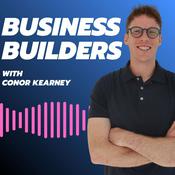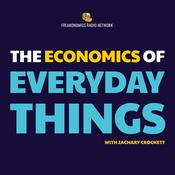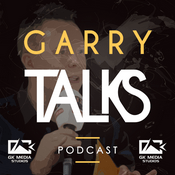448 episodes
- In this conversation, Peter discusses significant announcements from Consensus Hong Kong regarding Cardano and the Midnight Network. Key highlights include the integration of Layer Zero for cross-chain interoperability, the introduction of USDCX, a privacy-focused stablecoin, and the upcoming launch of the Midnight Network. The discussion also covers the roadmap for Midnight and the innovative Midnight City project, which aims to showcase the capabilities of the Midnight Network in a fun and engaging way.
Takeaways
Layer Zero integration will enhance Cardano's interoperability.
USDCX offers a privacy-focused alternative to USDC.
The Midnight Network is set to launch by the end of March.
Midnight City will demonstrate the capabilities of the Midnight Network.
Increased liquidity from USDCX could attract institutional investors.
Layer Zero connects over 160 blockchains, facilitating liquidity flow.
The Midnight Network aims to support hybrid applications with privacy features.
Tokenized real-world assets are a focus for Cardano's future.
The roadmap for Midnight includes multiple phases for gradual rollout.
Midnight City will be a unique demonstration of blockchain interactions.
Chapters
00:00 Exciting Announcements from Consensus Hong Kong
02:58 Layer Zero Integration and Its Impact on Cardano
05:46 Understanding USDCX and Its Benefits for Cardano
09:07 Midnight Network Launch and Its Roadmap
12:02 Midnight City: A New Era of Privacy in Blockchain
DISCLAIMER: This content is for informational and educational purposes only and is not financial, investment, or legal advice. I am not affiliated with, nor compensated by, the project discussed—no tokens, payments, or incentives received. I do not hold a stake in the project, including private or future allocations. All views are my own, based on public information. Always do your own research and consult a licensed advisor before investing. Crypto investments carry high risk, and past performance is no guarantee of future results. I am not responsible for any decisions you make based on this content.
🔗 https://www.youtube.com/watch?v=Fq8FhvxET2k
Subscribe to the audio podcast:
🔗 https://bit.ly/learncardano-spotify
🔗 https://apple.co/3jEPM8C
🔗 https://learncardano.io/
Follow on Social:
🔗 https://x.com/learncardano
🔗 https://facebook.com/learncardano - Go behind the scenes with the team building Atlas, a game-changing DeFi protocol on Cardano and Midnight that unlocks "trapped" staking rewards through yield tokenization. Learn how they are partnering with Midnight and Iagon to bring institutional-grade privacy and liquid yield strategies to everyone in 2026.
Chapters
00:00 Introduction to Atlas and the Guests
03:04 Backgrounds in Crypto and Cardano
06:06 Understanding Atlas and Its Purpose
09:10 Yield Tokenization Explained
11:45 Future of Atlas and Real World Assets
15:02 Partnerships and Collaborations
18:06 Development Timeline and Community Engagement
DISCLAIMER: This content is for informational and educational purposes only and is not financial, investment, or legal advice. I am not affiliated with, nor compensated by, the project discussed—no tokens, payments, or incentives received. I do not hold a stake in the project, including private or future allocations. All views are my own, based on public information. Always do your own research and consult a licensed advisor before investing. Crypto investments carry high risk, and past performance is no guarantee of future results. I am not responsible for any decisions you make based on this content.
🔗 https://www.youtube.com/watch?v=Fq8FhvxET2k
Subscribe to the audio podcast:
🔗 https://bit.ly/learncardano-spotify
🔗 https://apple.co/3jEPM8C
🔗 https://learncardano.io/
Follow on Social:
🔗 https://x.com/learncardano
🔗 https://facebook.com/learncardano - This conversation delves into the current state and future of the Cardano ecosystem, focusing on oracles, decentralised applications (DApps), governance, and interoperability. Peter discusses the challenges faced by Cardano's oracle projects, the potential for funding and support for DApps, and the innovative solutions being developed to enhance cross-chain capabilities. The conversation also highlights the Cardano Foundation's efforts to decentralise governance and the significance of security in smart contracts and NFTs.
Takeaways
Charlie 3 is a notable oracle project in Cardano.
The Oracle business in Cardano faces significant challenges.
Chainlink's integration could have enhanced Cardano's privacy features.
Funding for top DApps is crucial for their competitiveness.
Interoperability between Ethereum and Cardano is a game-changer.
Decentralisation in governance is a priority for the Cardano Foundation.
Atomic swaps will facilitate cross-chain transactions.
Cardano's smart contracts have a strong security record.
NFTs on Cardano are designed to be fully decentralised.
The future of DeFi in Cardano looks promising with new innovations.
Chapters
00:00 Introduction to Kadarno and Oracles
02:54 The Future of Oracles in Cardano
05:47 Funding and Support for Cardano DApps
09:06 Interoperability and Cross-Chain Solutions
11:52 Governance and Community Involvement in Cardano
14:47 Innovations in DeFi and Smart Contracts
18:09 The Importance of Decentralisation in NFTs
DISCLAIMER: This content is for informational and educational purposes only and is not financial, investment, or legal advice. I am not affiliated with, nor compensated by, the project discussed—no tokens, payments, or incentives received. I do not hold a stake in the project, including private or future allocations. All views are my own, based on public information. Always do your own research and consult a licensed advisor before investing. Crypto investments carry high risk, and past performance is no guarantee of future results. I am not responsible for any decisions you make based on this content.
🔗 https://www.youtube.com/watch?v=Fq8FhvxET2k
Subscribe to the audio podcast:
🔗 https://bit.ly/learncardano-spotify
🔗 https://apple.co/3jEPM8C
🔗 https://learncardano.io/
Follow on Social:
🔗 https://x.com/learncardano
🔗 https://facebook.com/learncardano - In this conversation, the hosts discuss the innovative game Ascent Rivals, a fusion of racing, combat, and strategy, developed with a focus on traditional gaming experiences. The developers share their backgrounds in game development and esports, emphasising community engagement and organic growth during the alpha phase. They explore funding strategies, integrating Web3 elements, and the technical aspects of building on the Cardano blockchain, aiming to create a game that appeals to both traditional and Web3 gamers.
Takeaways
Ascent Rivals is a fusion game combining racing, combat, and strategy.
The development team has a strong background in traditional gaming and esports.
Community engagement is crucial for game development in the Web3 space.
The game aims to attract traditional gamers rather than just Web3 enthusiasts.
Funding comes from grants, consulting work, and self-funding.
The team is focused on organic growth and community feedback during alpha testing.
Web3 elements will be integrated seamlessly to enhance the player experience.
The game is designed to be fun and engaging without relying on crypto incentives.
Technical advancements are leveraged to achieve ambitious goals with a small team.
The vision includes making Ascent Rivals a recognised esports title.
Learn more about the game and join the community:
https://www.ascentrivals.com/
Chapters00:00Introduction to Ascent Rivals
02:47Game Development Background and Vision
05:58Community Engagement and Feedback
08:49Funding and Development Strategy
12:05Web3 Integration and Onboarding
14:56Technical Aspects and Future Plans
DISCLAIMER: This content is for informational and educational purposes only and is not financial, investment, or legal advice. I am not affiliated with, nor compensated by, the project discussed—no tokens, payments, or incentives received. I do not hold a stake in the project, including private or future allocations. All views are my own, based on public information. Always do your own research and consult a licensed advisor before investing. Crypto investments carry high risk, and past performance is no guarantee of future results. I am not responsible for any decisions you make based on this content.
🔗 https://www.youtube.com/watch?v=Fq8FhvxET2k
Subscribe to the audio podcast:
🔗 https://bit.ly/learncardano-spotify
🔗 https://apple.co/3jEPM8C
🔗 https://learncardano.io/
Follow on Social:
🔗 https://x.com/learncardano
🔗 https://facebook.com/learncardano - Summary
In this episode, Peter dives into the current state of the crypto landscape, focusing on the Midnight and Cardano Blockchains. He discusses the implications of the recently passed Genius Act, which allows for stablecoin rewards, and highlights the ongoing struggle between banks and crypto companies over regulatory control. Peter emphasises the need for a level playing field where both sectors can thrive, particularly in the realm of stablecoins. He also shares insights on the price trends of the Midnight token, upcoming developments, and his plans to attend meetups in Japan to engage with the community and learn more about the ecosystem.
The episode further explores various projects building on the Midnight Blockchain, including a new identity solution and a DeFi project aimed at unlocking liquidity from staked assets. Peter also touches on the collaboration between Google Cloud and Midnight, the launch of new tools and wallets, and the integration of swaps into the Lace Wallet. He wraps up with a discussion on hardware wallets and the importance of security in the crypto space, encouraging listeners to stay informed and engaged with the evolving landscape.
Chapters
00:39 Current Regulation State
03:06 Midnight $NIGHT Update
04:21 Midnight Ambassador Program
05:10 What's Being Built on Midnight - Nocy
08:31 Building on Midnight: Keyd Network
09:20 Interview with Atlas DeFi Building on Midnight Coming Up
10:34 Google Cloud Comes to Cardano & Midnight
11:46 Midnight Explorer
12:31 Splash & DexHunter to Merge
14:10 FROST Signatures
15:41 Bitcoin DeFi: Bifrost Bridge
16:25 FluidTokens P2P Loans
18:06 Smart Token DEX
20:06 Emurgo & W3iSoftware MoU
21:38 Lace Wallet Introduces Swaps
23:02 Get a Hardware Wallet
24:03 Become a Channel Member
DISCLAIMER: This content is for informational and educational purposes only and is not financial, investment, or legal advice. I am not affiliated with, nor compensated by, the project discussed—no tokens, payments, or incentives received. I do not hold a stake in the project, including private or future allocations. All views are my own, based on public information. Always do your own research and consult a licensed advisor before investing. Crypto investments carry high risk, and past performance is no guarantee of future results. I am not responsible for any decisions you make based on this content.
🔗 https://www.youtube.com/watch?v=Fq8FhvxET2k
Subscribe to the audio podcast:
🔗 https://bit.ly/learncardano-spotify
🔗 https://apple.co/3jEPM8C
🔗 https://learncardano.io/
Follow on Social:
🔗 https://x.com/learncardano
🔗 https://facebook.com/learncardano
More Business podcasts
Trending Business podcasts
About Learn Cardano Podcast
The Learn Cardano Podcast is about the Cardano blockchain and all its aspects, from staking, stake pool operations, smart contracts, and coding in Plutus to voting in Project Catalyst. If you have heard about Bitcoin and Ethereum but haven’t heard of Cardano, this podcast is for you. We’ll have news updates from the project, interviews with key Cardano leadership, community members, stake pool operators and step-by-step how-to guides to understand aspects of Cardano better.Subscribe and leave us a 5-star review. Find all of the show notes at https://learncardano.io.DISCLAIMER: This content is for informational and educational purposes only and is not financial, investment, or legal advice. I am not affiliated with, nor compensated by, the project discussed—no tokens, payments, or incentives received. I do not hold a stake in the project, including private or future allocations. All views are my own, based on public information. Always do your own research and consult a licensed advisor before investing. Crypto investments carry high risk, and past performance is no guarantee of future results. I am not responsible for any decisions you make based on this content.🔗 https://www.youtube.com/watch?v=Fq8FhvxET2k Subscribe to the audio podcast:🔗 https://bit.ly/learncardano-spotify 🔗 https://apple.co/3jEPM8C 🔗 https://learncardano.io/ Follow on Social:🔗 https://x.com/learncardano 🔗 https://facebook.com/learncardano
Podcast websiteListen to Learn Cardano Podcast, Prof G Markets and many other podcasts from around the world with the radio.net app

Get the free radio.net app
- Stations and podcasts to bookmark
- Stream via Wi-Fi or Bluetooth
- Supports Carplay & Android Auto
- Many other app features
Get the free radio.net app
- Stations and podcasts to bookmark
- Stream via Wi-Fi or Bluetooth
- Supports Carplay & Android Auto
- Many other app features


Learn Cardano Podcast
Scan code,
download the app,
start listening.
download the app,
start listening.







































